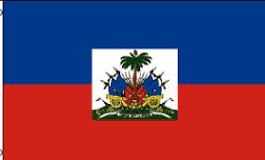Who are the New Haitian Residents and Workers in Evansville/Vanderburgh County and Why Are They Here
WRITTEN BY JOE WALLACE
AUGUST 30, 2024
Background and Purpose
The program is a strategic component of the Biden administration’s broader immigration policies, which aim to create legal pathways for migrants from countries experiencing significant turmoil while curbing illegal crossings at the southern border. The initiative also reflects a cooperative arrangement with Mexico, which agrees to accept deportees who crossed the U.S. border illegally.
The focus countries, Cuba, Haiti, Nicaragua, and Venezuela, are known for sending substantial numbers of migrants to the U.S. These nations typically do not accept deportees, complicating the U.S.’s ability to manage unauthorized immigration effectively. By allowing migrants to enter legally, the program aims to provide a humane alternative to risky, illegal border crossings.
Program Operations and Costs
The program permits up to 30,000 migrants monthly from the four countries. To qualify, migrants must have a U.S.-based financial sponsor who vouches for them, and they must fly into an American airport at their own expense, rather than crossing the southern border. Sponsors and migrants undergo rigorous screening by the Department of Homeland Security (DHS).
Operating costs of the program involve expenses related to vetting procedures, administration, and support services. Although exact figures are not readily disclosed, the costs are substantial due to the high volume of entrants and the need for thorough vetting processes. The DHS has also recently implemented additional procedures to prevent fraud and exploitation.
Challenges and Criticisms
While the program has been praised for offering a legal pathway for migrants, it has also faced criticism, particularly from Republican lawmakers who view it as circumventing standard immigration laws. The suspension earlier in the month heightened concerns about sponsor fraud, with reports suggesting some sponsors used fake Social Security numbers or other fraudulent means to support applications.
An internal review by DHS found isolated instances of fraud among sponsors but no systemic issues. The agency responded by tightening vetting measures, including the requirement for sponsors to provide fingerprints and undergo more comprehensive financial checks.
Concerns also arose regarding sponsors profiting from the arrangement, as reports indicated the existence of online groups where sponsors offered their services in exchange for compensation. Despite these challenges, DHS maintains that the majority of cases have valid explanations, such as simple data entry errors.
Current Status and Outlook
Since the program’s inception, more than 520,000 people from Cuba, Haiti, Nicaragua, and Venezuela have been granted entry into the U.S. Many of these migrants have settled in states with existing immigrant communities, such as Florida, Texas, and New York, where they seek employment and stability. The program’s continuation will depend on its ability to maintain integrity, ensure thorough vetting, and manage the flow of migrants in a way that aligns with U.S. immigration policies.
Despite its challenges, the program remains a significant element of the U.S. strategy to address the humanitarian and political crises driving migration from these countries. By offering a structured and legal pathway, the Biden administration hopes to mitigate the risks associated with illegal crossings while upholding national security standards.
FOOTNOTE: This article was posted by the City-Council Observer without bias or editing.
This is a developing story. In future articles, the CCO will look at some of the challenges the migrants face in relocating to Evansville.
The issues of providing the migrants with an improved vetting process, meaningful education, liveable housing, good healthcare, and improved communication skills, as well as the need to receive a safe pathway for the migrants from third-world countries who relocate to America in search of a better quality of life.
This is an extremely complex and challenging government-created relocation program and will take time, money patience to address the major issues facing this government-created and sponsored humanitarian program.






.
All of us………ALL of us in the United States (other than Native Americans), came ashore as immigrants seeking a better life than the Country they came from.
1. Entered.
2. Sought jobs to support our families.
3. Paid taxes, and abided by the Laws of the US.
3. Became Citizens after a Citizenship Process
So, we you see a LONG table wait, or bad service at a local Restaurant, and you wonder why? And you gripe that the Owner is a terrible Operator?
It’s because he can’t find employees! The US population is older, there aren’t as many young kids seeking jobs, and those that are will NEVER work in that Restaurant.
Answer: Planned, organized immigration. It’s how WE ALL got here. The US needed us for jobs to be filled, exactly like the situation we find ourselves in today.
Following all of the rules OUR forefathers did?
We need programs like Joe is discussing today……to work.
“NO. YOU CAN’T COME IN” is not the answer….as long as immigrants follow the law.
And when they don’t?
Just like when WE don’t?
They get arrested. And risk deportation.
Now. If you are a racist, and you don’t want immigrants at all because they have skin browner than yours?
None of this makes sense to you.
Right. We get that.
I totally agree.
We have laws for immigrants to come in……….Under today’s demoncrat party Laws don’t matter……..Ask American families who have lost family to these not vetted killers not to mention all the terrorists that have came in…..today’s marxist demoncrats = destruction of America……. WITHOUT A DOUBT
…Ding! Ding! Ding!!
There’s one of them, right now: al sharpie. Eviltaxpayer? He’ll Ding! in any moment.
Comments are closed.